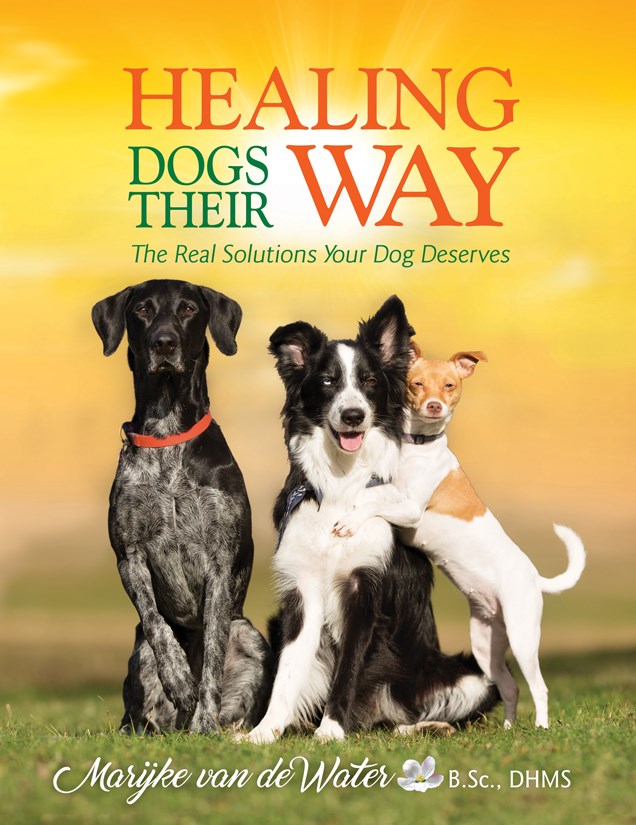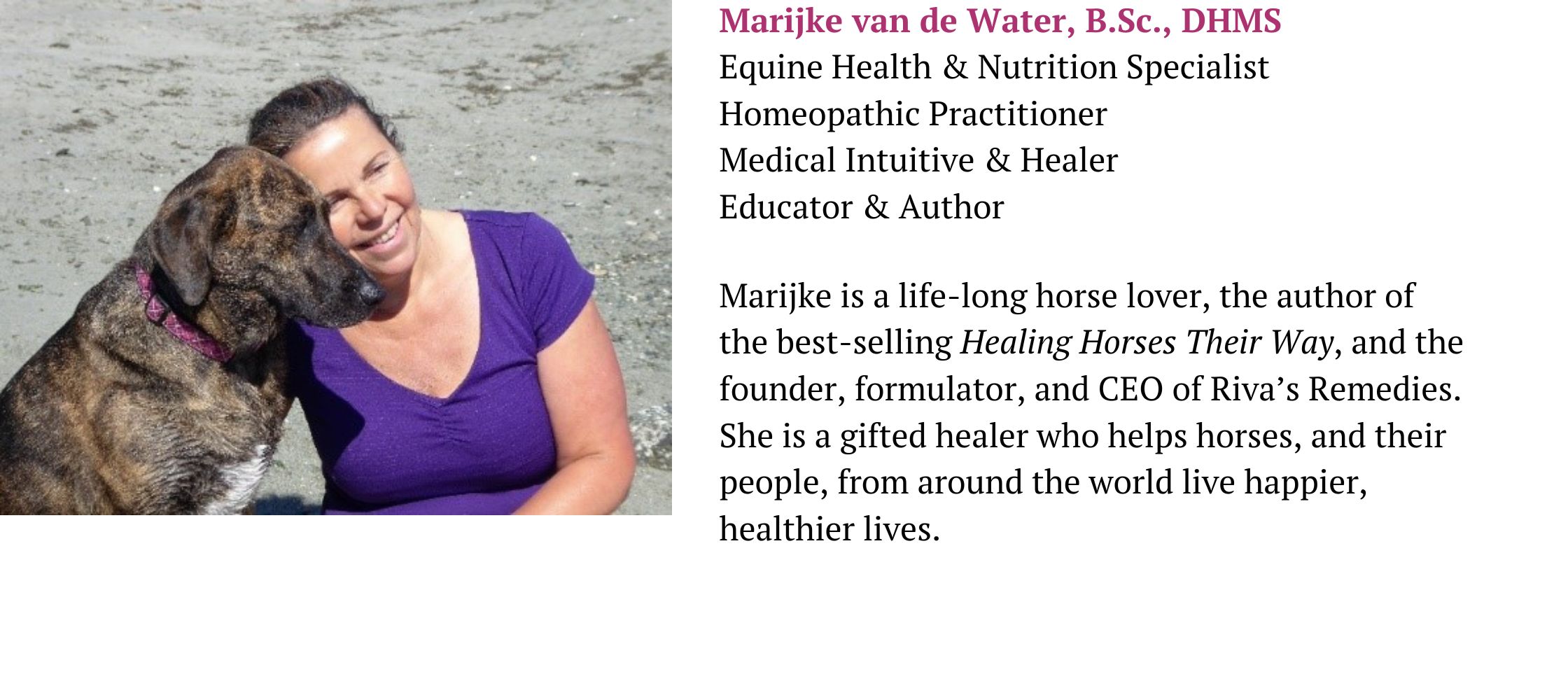Understanding Leaky Gut in Dogs
Leaky gut is a very significant problem for many dogs because it is responsible for so many different symptoms and health problems. However, it is seldom diagnosed and therefore remains as a silent but major contributor to a variety of health conditions.
What Is Leaky Gut?
Leaky gut (cecal acidosis) is a condition which results from the toxic by-products of food digestion in the large colon. Any foods that are mal-digested will produce fermentative acids, toxins, heat, and pathogenic bacteria, all of which affect the health of the entire digestive tract including the small intestine and the stomach. These toxins also eventually damage the colon membranes. The damaged membranes become overly permeable allowing the acids, toxins, and mal-digested food proteins to leak through and migrate into the general body. This process is known as autointoxication because the toxins are formed inside the body itself.
The toxicity in the colon not only attracts intestinal pathogens such as bacteria, yeast, and parasites, all of which produce their own toxins, but the autointoxication causes damage and inflammation to various organs and body systems as well. These autotoxins will also interfere with the normal physiological functions of the body.
In some cases, the membranes become so permeable that liquids leak back into the colon causing diarrhea and dehydration.
What Causes Leaky Gut?
Toxic intestines are mostly caused by feeding practices. Dietary issues include any foods that are difficult to digest but easy to ferment. These foods include wheat, corn, white rice, soy, refined carbohydrates, commercial kibbles, dry food, and/or excess meat. All of these food groups are culprits in causing intestinal toxicity. Too many carbohydrates and sugars cause food particles to ferment in the large colon where they will release excessive amounts of hydrogen, carbon dioxide, and methane gases. Excess meat results in the production of other chemicals, namely ammonia, amines, phenols, and sulfides.
Leaky gut is an intestinal condition which results from the toxic by-products and chemicals of mal-digestion and poor food choices.
All of these chemicals stress the liver and kidneys and cause havoc in the microbiome where they kill off friendly bacteria (probiotics) and encourage the proliferation of unfriendly bacteria, i.e., disease-causing pathogens. In fact, anything that disturbs the microbiome is a contributor to leaky gut, including the use of antibiotics and steroids.

What Symptoms Will My Dog Have?
Symptoms are usually directly or indirectly related to a toxic colon, a toxic liver, over-worked kidneys, and a compromised immune system. Toxins and chemicals will also wreak havoc on the brain and nervous system resulting in behavioural changes. Therefore, leaky gut dogs may present with the following signs and symptoms:
Skin conditions | Joint and bone pain
Food allergies | Muscle conditions
Diarrhea | Stiffness
Gas and bloating | Depression
Immune issues | Anxiety
Cancer | Neurological problems
Generalized inflammation | Respiratory issues
What Should My Leaky Gut Dog Be Eating or Not Eating?

Balance is the key, and it is best to feed dogs a variety of different foods that are highly nutritious and higher in fibre. Healthy foods include most vegetables, whole grains, lentils, cooked barley, soups, stews, eggs, salmon, and poultry if they can tolerate chicken or turkey. High-fibre foods, such as vegetables, legumes, and whole grains, are very beneficial because they encourage detoxification and intestinal healing, and act as a prebiotic as well.
Avoid feeding these foods:
Corn gluten | Dairy products
Wheat and bread products | Sugary snacks and treats
Soy products | Chicken in sensitive dogs
White rice | Dry kibble diets
Quinoa | Excess meat protein
Excess oils and fats | Organ meats
Red meat (beef, venison, bison)
Recommended Supplements & Remedies
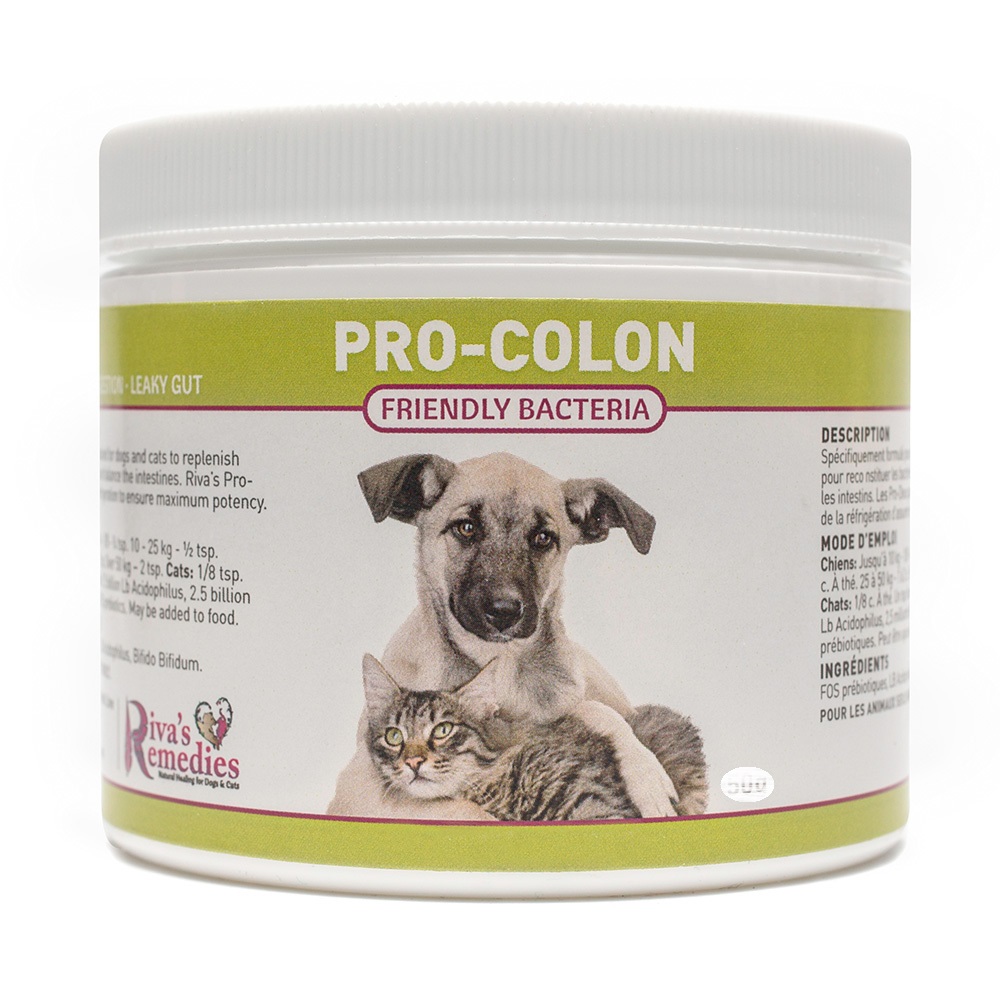
Pro-Colon pre and probiotics – Aids leaky gut and discourages the growth of unfriendly bacteria, yeast, and viruses. Improves nutrient absorption and maintains a healthy immune system.
Adequate levels of probiotics are very important for keeping the microbiome in balance, efficient food digestion, and protecting the colon membranes from further damage.
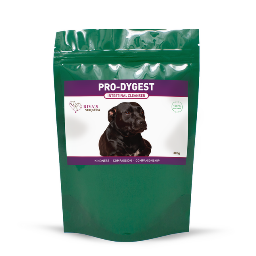
Pro-Dygest Herbal Blend – Colon cleanser and detoxifier. Soothes intestinal irritations and helps to maintain a healthy digestive system
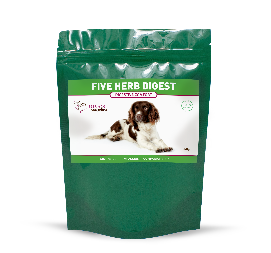
Five Herb Digest Herbal Blend – Soothing blend for indigestion, inflammation, and excess acid. Aids digestive processes.
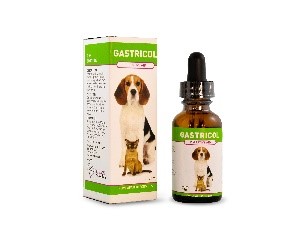
Gastricol, homeopathic liquid – Intestinal discomfort, gas, bloating, reflux, and toxicity. Supports liver function.
Healthier Dogs
So much more research has emerged in the last ten years on the significant impact that diet, colon health, and the microbiome have on almost all diseases. By learning how to feed our dogs with healthy food and support them with well-selected supplements we can spare our dogs from a myriad of health conditions and promote optimum health and wellness. They deserve it!
* Please note: We provide a thorough selection of natural products to help you choose the ones that are best suited for your dog. If you need additional assistance in making the right choice, feel free to reach out to us.
For more information on diet, nutrition, and healing dogs naturally,
Order Marijke’s Book:
